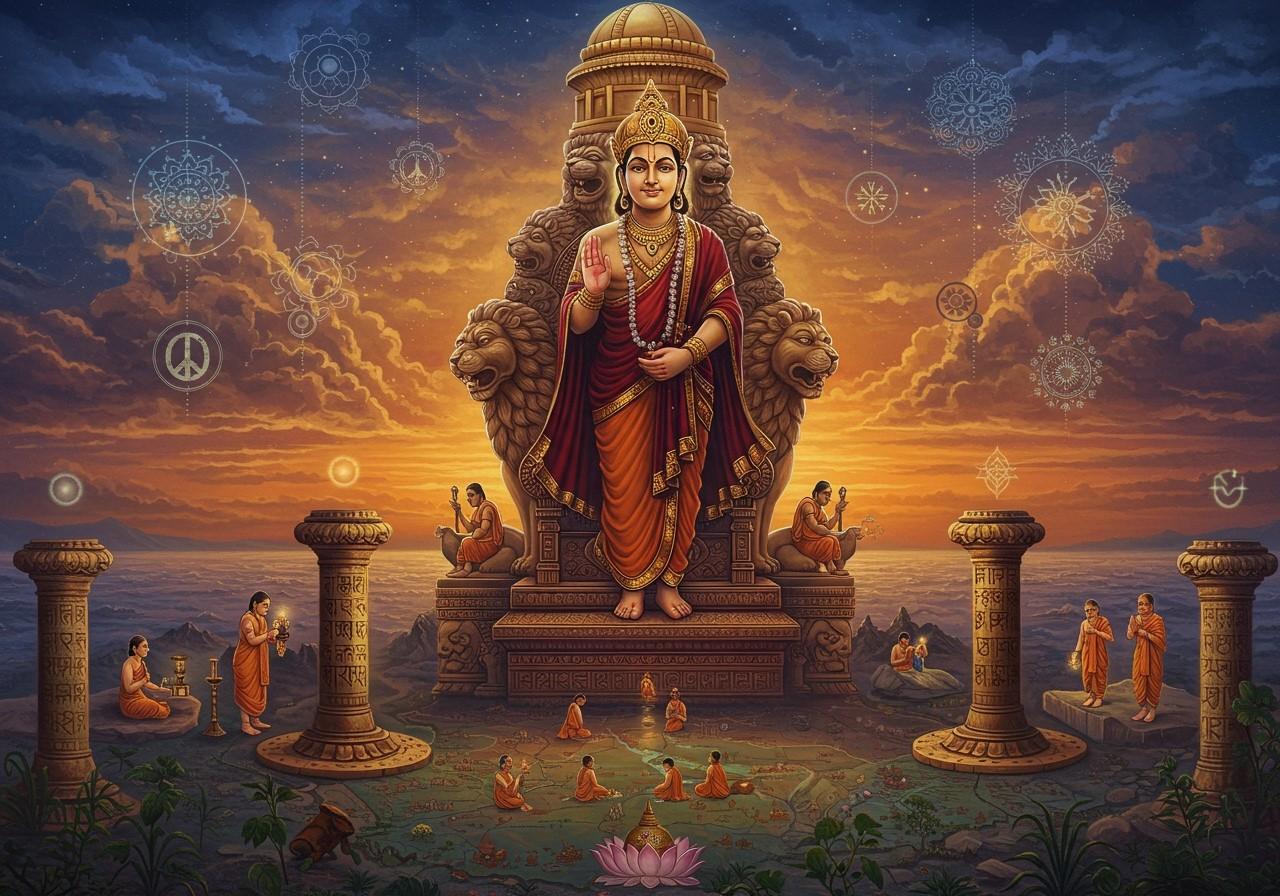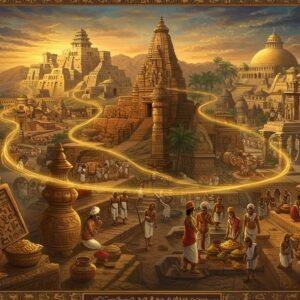
Ashoka, also known as Ashoka the Great, stands as one of India’s most influential emperors. His reign, spanning from 268 to 232 BCE (3rd century BCE), marked a transformative era in Indian history. Ashoka’s impact resonated beyond the political sphere, profoundly shaping cultural, religious, and social structures. This article delves into the extent and impact of Ashoka’s influence across India, providing a comprehensive overview of his enduring legacy. His reign saw the expansion of Buddhism throughout India and the establishment of a nearly pan-Indian political entity. His policies and the principles of Dhamma he propagated significantly influenced India’s moral and cultural ethos for centuries.
Early Life and Background
Ashoka’s journey from prince to legendary emperor is essential to understanding his influence. Born in 304 BCE in Pataliputra (modern-day Patna), Ashoka was the son of Bindusara and grandson of Chandragupta Maurya. His upbringing and education played a pivotal role in shaping his future as a ruler. The Maurya dynasty, during his formative years, experienced substantial growth and consolidation of power. Ashoka’s name, meaning “without sorrow” in Sanskrit, reflected his strong character and destined leadership.
Ashoka’s Reign and Administration
Ashoka’s reign represented the pinnacle of the Mauryan Empire. His rule encompassed a vast majority of the Indian subcontinent, demonstrating efficient governance structures. He maintained law and order while implementing various public welfare schemes. Pataliputra served as his capital, alongside other major cities under his administration. Ashoka’s economic policies positively influenced trade and agriculture, contributing significantly to the empire’s prosperity.
The Kalinga War and Ashoka’s Transformation
The Kalinga War proved to be a pivotal moment in Ashoka’s life and reign. The events leading up to the war and its devastating consequences filled Ashoka with deep remorse, leading to his subsequent conversion to Buddhism. The Kalinga Edicts stand as a testament to his commitment to non-violence and ethical governance. His post-war policies, shaped by his profound transformation, centered on propagating Buddhism and its teachings throughout his empire.
Ashoka’s Edicts and Monuments
Ashoka’s edicts and monuments are crucial for understanding his legacy. Various types of edicts, including Rock Edicts, Pillar Edicts, and Minor Edicts, conveyed messages of ethical conduct, religious tolerance, and social welfare. These inscriptions were disseminated across India, with significant monuments like the Sanchi Stupa and the Ashoka Pillar at Sarnath showcasing the artistic and architectural achievements of his reign.
Impact on Religion and Culture
Ashoka’s influence on religion and culture was profound. He played a pivotal role in disseminating Buddhism across India and beyond, establishing numerous Buddhist monasteries and stupas. His promotion of religious tolerance fostered cultural exchange and understanding. He is best known for his patronage of Buddhism.
Ashoka’s Legacy
The legacy of Ashoka the Great continues to resonate in modern India. His portrayal in historical texts and modern historiography underscores his influence on Indian values such as non-violence and compassion. His representation in popular culture, including literature, films, and art, remains significant. Symbols like the Ashoka Chakra in contemporary India reflect his enduring relevance. The principles of Dhamma he propagated significantly influenced India’s moral and cultural ethos for centuries.
FAQs
Where was Ashoka the Great born? Ashoka the Great was born in Pataliputra, present-day Patna in Bihar, India.
What regions did Ashoka’s empire cover? Ashoka’s empire encompassed most of modern-day India, extending into parts of present-day Afghanistan, Bangladesh, and Nepal.
What are the Ashoka pillars? The Ashoka pillars are monumental columns erected across India, inscribed with edicts reflecting Ashoka’s policies and beliefs. These pillars stand as enduring symbols of his reign and commitment to Dhamma.
Poojn.in: Connecting You to India’s Rich Cultural Heritage
At Poojn.in, we understand the profound significance of Ashoka’s legacy in shaping India’s spiritual and cultural landscape. We offer a curated selection of products that resonate with the values and traditions associated with this era. Our collection helps you connect with the rich history of Buddhism and the enduring principles of Dhamma.
- 100% Pure Ashoka Chal Powder: Experience the purity and sanctity of the Ashoka tree with our premium Ashoka bark powder. Sourced sustainably and packaged with utmost care, this product is ideal for various rituals and traditional practices. This is related to the Ashoka tree, which is relevant to the blog post about Ashoka the Great.
- Pure Ashoka Bark: For those seeking authentic Ashoka tree bark, we offer high-quality, ethically sourced options. Perfect for traditional ceremonies and personal use, our Ashoka bark connects you to the historical and spiritual significance of this revered tree. This is related to the Ashoka tree, which is relevant to the blog post about Ashoka the Great.
Explore our diverse range of spiritual and cultural products at Poojn.in. We are committed to providing authentic and high-quality items that support your spiritual journey and connect you with India’s rich heritage. Explore our collection today and discover the essence of ancient traditions.
Further explore the rich tapestry of Indian culture and spirituality through our related blog posts:


